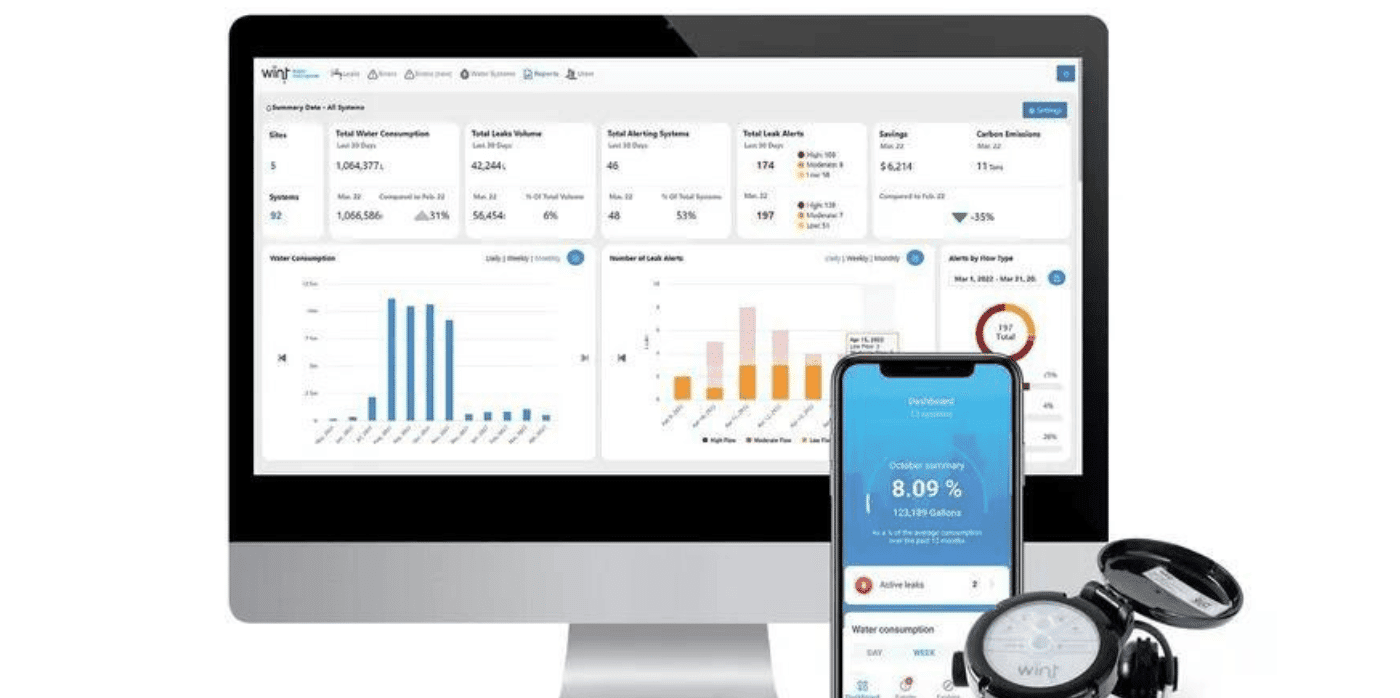
Spotted: Managing water well is increasingly important as the world is impacted by climate change. Yet water in buildings is unmanaged – delivered through unintelligent pipes that are unnecessarily costly and inefficient. The average household can lose 10,000 gallons of water every year due to leaks, and when a pipe breaks or leaks, escaping water can cause severe damage. With the help of artificial intelligence (AI), Israeli company Wint has found a way to change this: using intelligent pipes to detect water leaks and wastage.
Using real-time AI, Wint’s breakthrough technology prevents water waste at the source. When there is a break or leak, the devices alert maintenance staff and can even automatically shut off water supplies when needed. Unlike other solutions, the AI system is constantly learning and adapting to different water networks, supporting systems from domestic water to air conditioning and heating to ensure the buildings can effectively manage the water throughout.
Yaron Dycian, Wint’s Chief Product and Strategy Officer explains: “The built environment is one of the largest industries in the world sized at many trillions of dollars; it includes all construction sites, residential buildings, commercial buildings, etc… Yet this vast ecosystem is also one of the least technologically advanced one. Having built solutions for the most advanced users of IT technologies such as banks and e-commerce, I decided that it would make sense to help bring the benefits of IT to this relatively less IT-savvy world. Seeing the growing need for sustainability combined with the insurance impact of water leak damage, this seemed like an obvious area to address.”
Recently, the company completed a funding round, raising $35 million (around €32.4 million) to drive growth for managing water through AI.
Springwise has previously spotted other intelligent innovations in the archive tackling water scarcity through management, from an AI used to manage global water supplies to a data-driven water management system that ensures communities have enough fresh water.
Written By: Georgia King

